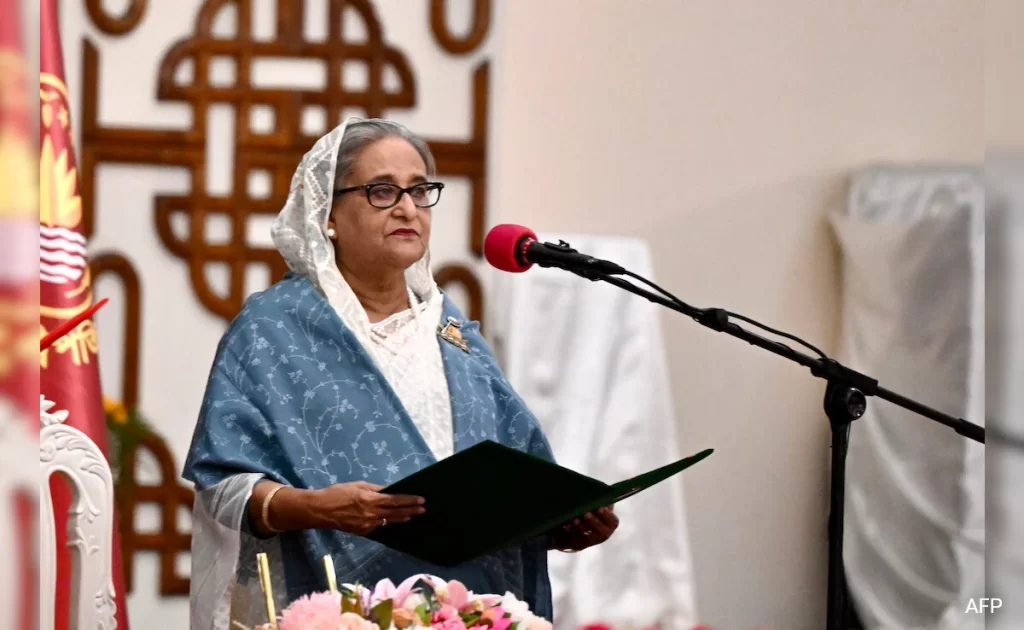Rehan Khan
In a dramatic turn of events, Bangladesh Prime Minister Sheikh Hasina resigned on 5th July and fled the country amid widespread anti-government protests. The announcement was made by the Bangladeshi Army chief, General Waker-uz-Zaman, who also declared the formation of an interim government.
The protests, initially sparked by a controversial quota scheme for government jobs, evolved into a broader movement against Hasina’s administration. Demonstrations intensified when a High Court ruling in June reinstated a 30% quota for family members of freedom fighters from the 1971 Liberation War. This decision, which overturned the abolition of the quota in 2018, reignited anger among young job seekers and students who feared being deprived of opportunities.
The unrest culminated on 5th July afternoon when thousands of protestors stormed the Prime Minister’s official residence in Dhaka. Visuals broadcasted by various media outlets showed crowds jubilantly entering the residence, some carrying away furniture and other items. Additionally, protestors climbed atop a statue of Sheikh Mujibur Rahman, Hasina’s father and a key figure in Bangladesh’s independence, and began chiseling away at the head.
Hasina, along with her younger sister Sheikh Rehana, reportedly left the country in a military helicopter. While initial reports suggested they might be heading to India, the exact destination remains unconfirmed. Following her departure, General Waker-uz-Zaman held meetings with political parties and civil society members, urging student protestors to remain calm and return home. He assured that those responsible for any killings would be brought to justice.
The recent surge in violence saw at least 93 people killed and over 1,000 injured on Sunday alone, with the death toll in the ongoing protests since July now exceeding 300. The violent clashes between police and protestors, particularly in the Jatrabari and Dhaka Medical College areas, have drawn sharp criticism of Hasina’s handling of the situation.
Hasina, who has ruled Bangladesh since 2009 and secured her fourth consecutive term in January’s elections, faced increasing scrutiny over her government’s heavy-handed response to the protests. Reports of extrajudicial killings and mass detentions have further tarnished her administration’s image, ultimately leading to her resignation and departure from the country.

